There is no item in your cart
The Benefits of Choosing Organic Over Conventional: A Closer Look at
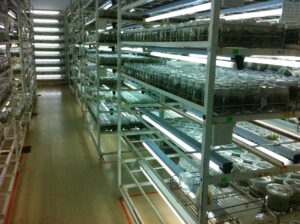
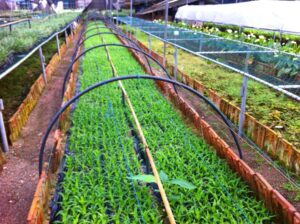
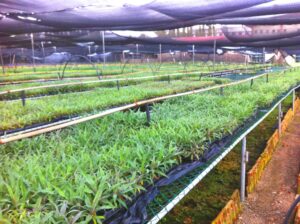
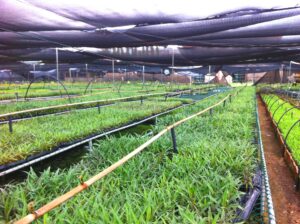
Sustainable Living## Understanding organic and conventional farming
In the realm of agriculture, two distinct approaches have emerged: organic and conventional farming. Conventional farming relies heavily on synthetic pesticides, fertilizers, and genetically modified organisms (GMOs) to maximize crop yields. In contrast, organic farming embraces a more natural and sustainable approach, eschewing synthetic inputs and emphasizing ecological balance and biodiversity.
Organic farming methods prioritize soil health, utilizing natural fertilizers like compost and manure to nourish the land. This approach not only promotes nutrient-rich soils but also fosters a diverse ecosystem, supporting beneficial insects, microorganisms, and wildlife. Organic farmers employ crop rotation, cover cropping, and integrated pest management techniques to maintain a harmonious agricultural environment.
The environmental impact of conventional farming
Conventional farming practices have raised significant environmental concerns. The extensive use of synthetic pesticides and fertilizers has been linked to soil degradation, water pollution, and the decline of beneficial insect populations. Furthermore, the reliance on monoculture farming, where a single crop dominates vast swaths of land, has led to a loss of biodiversity and increased vulnerability to pests and diseases.
The environmental toll of conventional farming extends beyond the immediate surroundings. The production and transportation of synthetic inputs contribute to greenhouse gas emissions, exacerbating climate change. Additionally, the widespread use of genetically modified crops has sparked debates about their potential long-term impacts on ecosystems and human health.
The benefits of organic farming
Organic farming offers a sustainable alternative that aims to minimize environmental harm while promoting ecological balance. By eschewing synthetic pesticides and fertilizers, organic farming reduces the risk of soil and water contamination, safeguarding the health of both ecosystems and consumers.
One of the primary benefits of organic farming is its emphasis on biodiversity. Organic farms typically cultivate a diverse array of crops, creating a rich tapestry of plant life that supports a wide range of beneficial insects, birds, and other wildlife. This diversity not only enhances the resilience of the ecosystem but also contributes to the preservation of genetic diversity within crop species.
Furthermore, organic farming practices help mitigate climate change by sequestering carbon in the soil through the use of organic matter and sustainable land management techniques. The absence of synthetic inputs also reduces the carbon footprint associated with their production and transportation.
Health benefits of choosing organic
Beyond the environmental advantages, choosing organic products offers potential health benefits. Organic produce is grown without the use of synthetic pesticides, which can leave residues on conventionally grown fruits and vegetables. While the long-term effects of pesticide exposure are still being studied, many consumers opt for organic produce to minimize their exposure to these chemicals.
Additionally, organic farming practices often result in higher levels of beneficial nutrients, such as antioxidants, in the final products. Studies have suggested that organic fruits and vegetables may contain higher concentrations of vitamins, minerals, and phytochemicals compared to their conventionally grown counterparts.
Supporting local farmers and communities
Choosing organic products not only benefits the environment and personal health but also supports local farmers and communities. Many organic farms are small-scale operations deeply rooted in their local communities. By purchasing organic produce from these farms, consumers help sustain local economies and promote sustainable agricultural practices within their region.
Furthermore, organic farming often employs more labor-intensive methods, creating job opportunities and supporting rural livelihoods. This, in turn, contributes to the preservation of agricultural traditions and the maintenance of vibrant rural communities.
Organic vs conventional: a cost comparison
One of the common concerns surrounding organic products is their perceived higher cost compared to conventionally grown alternatives. While it is true that organic produce may carry a premium price tag, it is essential to consider the broader implications and long-term benefits.
The higher costs associated with organic farming can be attributed to several factors:
- Labor-intensive practices: Organic farming relies on manual labor for tasks such as weeding, pest management, and crop rotation, which can be more time-consuming and labor-intensive than conventional methods.
- Certification and compliance costs: Organic farmers must adhere to strict regulations and undergo rigorous certification processes to ensure their products meet organic standards, which can incur additional costs.
- Lower yields: Due to the absence of synthetic inputs and the emphasis on sustainable practices, organic farms may initially experience lower yields compared to conventional operations.
However, it is crucial to recognize that the true cost of conventional farming extends beyond the price tag at the grocery store. The environmental and health costs associated with synthetic inputs, soil degradation, and water pollution are often externalized and borne by society as a whole.
When these hidden costs are factored in, the price disparity between organic and conventional products becomes less significant. Additionally, as organic farming practices become more widespread and economies of scale are achieved, the cost gap is expected to narrow further.
How to transition to an organic lifestyle
Embracing an organic lifestyle is a gradual process that involves making conscious choices and developing sustainable habits. Here are some practical steps to help you transition to an organic lifestyle:
- Start with what you consume the most: Begin by transitioning the products you consume most frequently, such as fruits, vegetables, and dairy products, to organic alternatives. This will have the most significant impact on reducing your exposure to synthetic pesticides and supporting organic agriculture.
- Read labels carefully: Become an informed consumer by reading labels and understanding the certifications and standards associated with organic products. Look for the USDA Organic seal or other reputable organic certifications.
- Explore local options: Support local organic farmers by visiting farmers’ markets, joining community-supported agriculture (CSA) programs, or seeking out local organic grocery stores or co-ops.
- Grow your own: Consider starting a small vegetable garden or container garden to grow your own organic produce. Even a few herbs or vegetables can make a difference in your organic journey.
- Gradually expand your organic choices: As you become more accustomed to an organic lifestyle, gradually expand your organic choices to include other products like clothing, personal care items, and household cleaners.
Remember, transitioning to an organic lifestyle is a journey, and every small step contributes to a more sustainable future.
Tips for shopping organic on a budget
While organic products may come with a higher price tag, there are several strategies to help you shop organic on a budget:
- Buy in season: Seasonal organic produce is often more affordable and readily available. Plan your meals around what’s in season and take advantage of local farmers’ markets or CSA boxes.
- Prioritize the “Dirty Dozen”: Focus your organic purchases on the “Dirty Dozen” list, which highlights the fruits and vegetables with the highest levels of pesticide residues when conventionally grown.
- Buy in bulk: Look for opportunities to purchase organic staples like grains, legumes, and nuts in bulk quantities, which can often result in cost savings.
- Grow your own: Starting a small garden or growing herbs in containers can provide a fresh, organic supply at minimal cost.
- Meal planning and batch cooking: Plan your meals in advance and cook larger batches to reduce food waste and stretch your organic ingredients further.
- Join a food co-op: Explore local food co-ops or buying clubs that offer discounts on organic products through collective purchasing power.
By implementing these strategies, you can enjoy the benefits of organic living while staying mindful of your budget.
Debunking common myths about organic food
Despite the growing popularity of organic products, several myths and misconceptions persist. Let’s address some of the most common ones:
- Myth: Organic food is not as nutritious as conventional food. Reality: Numerous studies have shown that organic produce often contains higher levels of beneficial nutrients, such as antioxidants, vitamins, and minerals, compared to conventionally grown counterparts.
- Myth: Organic farming cannot feed the world’s population. Reality: While organic farming may initially yield lower outputs, sustainable and diversified organic practices can increase productivity over time. Additionally, reducing food waste and promoting more equitable distribution systems can contribute to global food security.
- Myth: Organic food is not regulated or certified. Reality: Organic products are subject to strict regulations and rigorous certification processes overseen by government agencies and independent organizations. The USDA Organic seal and other reputable certifications ensure that organic standards are met.
- Myth: Organic food is completely free of pesticides. Reality: While organic farming prohibits the use of synthetic pesticides, it allows the use of certain natural pesticides derived from plants, minerals, or biological sources. However, these natural pesticides are closely regulated and must meet strict safety standards.
- Myth: Organic farming is not sustainable or eco-friendly. Reality: Organic farming practices are designed to promote sustainability and environmental stewardship. By avoiding synthetic inputs, fostering biodiversity, and prioritizing soil health, organic farming supports a more sustainable and resilient agricultural system.
By addressing these myths and misconceptions, consumers can make informed choices and embrace organic living with confidence.
Conclusion: Making the choice for sustainable living
The choice between organic and conventional farming extends far beyond personal preferences or dietary choices. It represents a fundamental decision about the kind of world we want to live in and the legacy we leave for future generations.
By choosing organic, we actively support a more sustainable and environmentally responsible approach to agriculture. We prioritize the health of our ecosystems, promote biodiversity, and safeguard the well-being of both humans and the planet.
While the transition to an organic lifestyle may require some adjustments and a reframing of our consumption habits, the benefits are far-reaching and profound. From supporting local farmers and communities to reducing our exposure to synthetic chemicals and promoting soil health, the impact of our choices ripples through the entire food system.
Ultimately, the decision to embrace organic living is a conscious choice to align our actions with our values and contribute to a more sustainable future. It is a commitment to nurturing the Earth, preserving its resources, and ensuring that future generations can thrive in a world where harmony between agriculture and nature is the norm, not the exception.
If you’re ready to embark on a journey towards a more sustainable lifestyle, consider exploring the organic product range offered by . From fresh produce to pantry staples, their selection of high-quality organic items is sure to meet your needs while supporting ethical and environmentally responsible farming practices. Take the first step today and experience the difference that organic living can make.Agromel UK
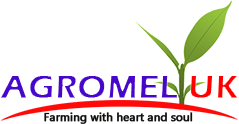


Written by
agromelukltd